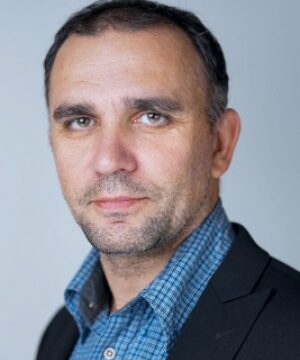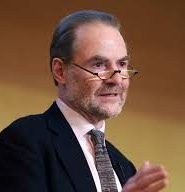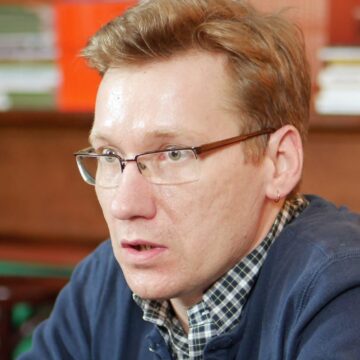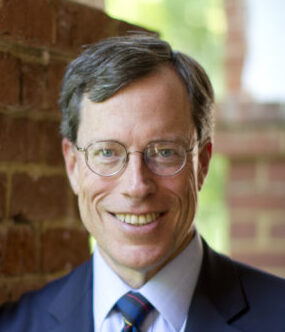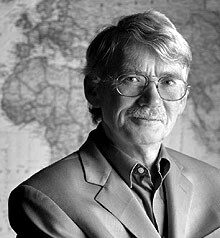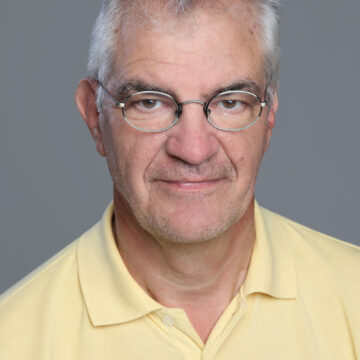For citation, please use:
Magun, A.V.; Garton, Ash Timothy; Teslya, A.A.; Bagger, Thomas; Zelikow, Philip; Mann, Michael; Maull, Hanns W., 2021. Thirty Years After: Every Collapse Has Its Inner Logic. Russia in Global Affairs, 19(4), pp. 184-196. DOI: 10.31278/1810-6374-2021-19-4-184-196
Artemy V. Magun
Professor, Director of the «Stasis» Center for Practical Philosophy, European University at St. Petersburg, Russia
The collapse of the USSR, like any historical event, creates a paradox and parallax. One party sees it as a “dark catastrophe” (Alain Badiou) or “restoration” (Boris Kagarlitsky), another party views it as a “liberal revolution” (Bruce Ackerman) or even as a chance for a “new Renaissance” (Vladimir Bibikhin), but the event itself can only be understood from within, that is, by assuming phenomenologically the point of view of its participants.


However, over time, when large historical processes became visible from a distance, it became clear that the pessimism of the orthodox left had solid grounds: the collapse of the USSR gradually led from initial democratization to demoralization, creating everywhere police nationalist regimes, in which the minds are dominated by fear and resentment rather than the habitual social ideal. We straightened ourselves up, but our gaze faded. Truly revolutionary in form, the events of the 1989s-1990s were reactionary in content. History has reversed itself like the Strugatsky brothers’ U-Janus. So the revolution of the 1980s-1990s may have been the retroactive culmination of our current history, read backwards.
I see nothing unprecedented in such a structure, and from the point of view of the subject, probably any significant event produces such a tangle. This is why one can rely on it in his experience, proceeding from it and going back to it. But let us ask: What real “peacetime” trends led to the collapse of the USSR, and which ones followed? It is already clear that these trends should be contradictory, just like the event itself.
Firstly, perestroika was a sort of suicide on the part of the Soviet system. Gorbachev directed against the socialist state the forces that had created it, reviving the dormant institution of the Soviets as the constituent, revolutionary power. Hence the strange sunset colors of the 1980s—the energy of demonstrations, songs and articles became a reflection of revolutionary energy transformed into the late Soviet-era antagonism.
Yet, secondly, this decline highlighted something else, namely growing bourgeois-consumer sentiments and structures in Soviet society. Actually, the Soviets created by the Revolution of 1917, while being democratic, quickly revealed various anarchist and selfish attitudes, so they had to be shut down. Revolutionary democracy exposes the truth and pushes society towards self-revelation, which is not always good for collective solidarity. Likewise, it transpired during perestroika that the majority, feeling slightly embarrassed, began to live a philistine life filled with horoscopes, detective stories, Orthodox icons, and liberal economics textbooks. A market ideology, which appears as a utopia of some spontaneous, organic existence, was a logical generalization of all this multicolored diversity.


Capitalism and socialism, opposed to each other in the Cold War, began to gradually exchange their features: in the West, capitalism started incorporating socialist institutions of welfare state, and the soft version of socialism became an ideology of intellectuals. At the same time, in the East, socialism could not resist consumer culture, while intellectuals had switched to either conservative or purely liberal positions, both being sharply critical of the left. This game of two mirrors gradually became obvious and produced a large-scale neoliberal anti-socialist wave that started in the United States and then splashed over the Iron Curtain. It crushed everything behind that curtain, making it possible to build, to the applause of the intelligentsia, new cartoonish capitalism on the remains of the socialist scaffolding. As for the United States and Europe, it seems this wave, in the absence of revolutionary events, has choked in the sand, producing a backrush in the form of movements like Occupy, and finally perpetuating the stalemate between dyed-in-the-wool capitalist cynics and diehard socialists who are taking revenge in harsh morality. We can see this stalemate polarizing civil society. So at its moment of truth, America may as well come up with its own but inverted perestroika, where the parties, too, will know not what they do.
In my interpretation, history looks quite viscous and keeps shuffling the same deck of cards, which, however, does not prevent us from distinguishing crucial events and developing utopian ideals worth fighting for in spite of moralism and cynicism.
Timothy Garton Ash
Professor of European Studies at the University of Oxford; Senior Fellow at Hoover Institution, Stanford University
Thirty years ago, I welcomed the end of the Soviet Union as the end of the last European empire. I still welcome it for that reason. A democratic Soviet Union was a contradiction in terms, like fried snowballs. Democratization inevitably raised the question of national self-determination. One of Mikhail Gorbachev’s mistakes was to think that the emancipation of the outer empire, in Central and Eastern Europe, could proceed without direct consequences for the inner empire, for example in the Baltic States.
It is often forgotten that when President George H. W. Bush and his national security adviser, Brent Scowcroft, dreamt up the term ‘New World Order,’ on a sea fishing trip off the coast of Maine one August day in 1990, they conceived of it as being a world order of cooperation between the U.S. and the USSR. In that sense, one could say that the New World Order lasted little more than one year.
“Britain has lost an empire and not yet found a role,” U.S. Secretary of State Dean Acheson famously remarked about Britain in the early 1960s. Russia has lost an empire and not yet found a role. The British example shows just how difficult that process of adjustment is, and how long it can take. After all, Brexit can be interpreted, in part, in terms of continued post-imperial aspirations to greatness, witness the post-Brexit slogan “Global Britain.” That Russia should come to be ruled by Vladimir Putin was anything but inevitable. That, however, a post-imperial Russia would aspire to retain the great-power status of Global Russia was always probable.
At the moment, the way in which the Putin regime interprets the mission of Global Russia makes it part of a new world disorder, in which geopolitics looks like the great power competition of 19th-century Europe, but on a global scale. I believe, however, that there are both external and internal grounds for thinking that this may not be the case for the next thirty years.


Combating climate change requires rapidly and drastically reducing the consumption of precisely those fossil fuels on which the present Russian economic and political model depends. While there is currently an authoritarian, anti-Western partnership between Moscow and Beijing, it is difficult to see Russia accepting a long-term future as a junior partner of China. Domestically, many if not most Russians probably still measure themselves against Europe.
A week in politics may be a long time, but a year in history is a short time. Looking another thirty years ahead, I still hope for a democratic Russia as an important power in a wider concert of Europe. Perhaps this is not probable, but it is certainly possible. And after all, who in 1961 would have imagined that the Soviet Union would collapse in 1991?
Andrei A. Teslya
Senior Researcher at Academia Kantiana, Emmanuel Kant Baltic Federal University
The main result of the Soviet Union’s collapse is that we still live, at least in our minds, in a state that we describe as “post-Soviet.” In other words, the “Soviet world” is still essential, but clearly not the early Soviet Union of the 1920s and the 1930s or even of the first post-war decade.
Our life passes in the shadow of what is actually a historical period basically equal in terms of length to the time that has passed since the collapse of the Soviet Union—a thirty-year stretch from the 20th CPSU Congress till perestroika.
We are pondering over the changes in what is nominally Soviet, but also over incredible transformations that have occurred during this thirty-year period. And yet all of these changes have so far not been able to form, if we allow deliberate psychologizing, a kind of coherent gestalt.


And we find ourselves in a situation that we tend to describe as the upcoming “polyarchy,” then as a premonition of a new “Westphalian system,” and now as global, but without the slightest sign of globalism or its rethought variety (which seems closer to the truth), where globalism does not contradict the territoriality of domination and the state framework (in a word, Braudel is relevant once again).
At the same time, in philosophical terms, this is a world that has suddenly lost its ontology. It is not accidental that the post-Soviet space was the place where we saw the triumph of such a strange phenomenon, which has so far not been thoroughly described, as “postmodernism” and its double, free from references to “world modernity,” but equally local—local programs of philosophical systems and attempts to return not even into the 20th, but into the 19th century.
Heroes of the “era of stagnation” have tried to describe their condition as the only possible norm, and then tried to get rid of it, or at least they said so, by referring to “reality” that fits into certain schemes and tables, while showing affection for new words by inventing them themselves for the naively ambitious or borrowing them and regularly changing their repertoire for a more sophisticated audience.
And as a side line, what brings us back to the topic of “post-,” it is the absence of cynics and legal positivists in post-Soviet Russia, who believe in regulation and legalization—pure legalism that is free from moral grounds and can dictate norms itself and establish them here and now, making no reference to anything beyond itself and eventually reduced to pure volition.
Taking the liberty of making a forecast, I would say that in the next decade or two we will definitely draw a watershed somewhere in the past as the beginning of a new era. It may be the events in Crimea in 2014 or some other event, but certainly something that changes our internal perception and ushers in a different worldview, if we use the language of the last century again.
The Soviet Union came off the stage, at least for Russia, quietly, contrary to the expected horrors of civil war and imperial collapse. But the quiet disappearance of the empire rather suggests that the empire has not gone anywhere and that the current period should primarily be viewed as an indication that the empire is hesitant to make its comeback. Whether this indecision is about the decline of the “imperial way to be,” or about the slowly rotating millstones of history, or about an empire that does not go anywhere and for centuries stands ready to return—this is a question that is addressed to the future, and not necessarily the immediate one.
Thomas Bagger
Director of Foreign Policy in the Office of the Federal President, Germany
The unthinkable happened—again. After the unexpected, unimaginable fall of the Berlin Wall in the autumn of 1989, the sudden and unceremonious end of the mighty Soviet Union came as yet another surprise. In German eyes, West and East, a mostly very welcome one.
Looking back at the momentous events of thirty years ago which hastened the independence of many countries in the post-Soviet space—some of them members of the European Union today—Germany clearly considers itself a „winner“ of the past three decades. And yet, beyond the joy over unification and the economic prosperity of a generation of high-speed globalization, the end of the Soviet Union also had a profound and more ambivalent impact on German thinking about the world.
Finally on the right side of history after having been on the wrong side at least twice in the 20th century, most Germans drew a curious lesson from these most unexpected political events of their lifetime: a thoroughly linear expectation of the future. A future in which Germany had already arrived at the destination of parliamentary democracy and social market economy and would now—more or less patiently—await the arrival of all others, our neighbors to the East included, Russia being the biggest among them.
This idea of grand convergence on a global scale also seduced many to generalize the rather particular German historical experience into a truly universal lesson. The victor is seldom curious. We lost interest in and knowhow about the intricacies of local politics, of cultural and economic trends in our increasingly granular neighborhood. The Soviet bloc was gone. But instead of carefully examining its many disparate pieces we preferred to believe they would all become like us—so why bother with the details. This confidence in the future trajectory of history blurred the lines of what was desirable and what was achievable. The idea of interventions to hasten the advent of the inevitable—the acceptance of the rule of law and respect for universal human rights globally—proved very seductive.
Maybe the creation of the International Criminal Court in 1998, modeled on the experiences of the Nuremberg trials after World War II, constituted the high-water mark of this German historical optimism fed by the events of 1989 and 1991. A project that promised to gradually tame and replace power by the rule of international law. A project that soon ran into opposition even by Germany’s most important ally, the United States of America.
The history of military interventions of the past decades, some with mixed success, some outright failures, have added to the self-doubt that permeates Western discourse these days. It slowly dawns on us that if you truly believe that the credibility of your own values and normative ideals depends on your ability to implement them even in the farthest corner of the globe you are setting yourself up for failure. Where did we go wrong? The uprising in East Germany on June 17, 1953, the Hungarian revolution in 1956, the Prague Spring of 1968, the Polish Solidarnosc in Gdansk in 1980—every single one of these attempted revolutions was crushed by Soviet might. The West did not come to their help because the threat of mutually assured destruction commanded caution and patience. But every one of those massive displays of political discontent confirmed Western convictions about the inherent value and attractiveness of free and open societies. We were helpless, almost, and yet emerged stronger from every episode. Does anyone remember?
Instead, our exaggerated expectations have given way to wide-spread disillusionment. 1989 and 1991 clearly changed the face and the trajectory of Europe—but did they really change the trajectory of the entire world? Could it be that the events of 1979 and the Iranian revolution had a similarly important but quite opposite effect on world history? Could it be that that other decisive event of 1989—the brutal repression of public dissent and democratic yearning on Tiananmen Square by the Chinese authorities on June 4—would leave a deeper or longer-lasting imprint on world history by stabilizing one-party rule and autocratic modernisation in China?
From our vantage point in the fall of 2021, the fortunes of 1991 seem almost reversed: plenty of soul-searching in the West after the failed transformation of Afghanistan, plenty of self-confidence—if not hubris—in Moscow and above all in Beijing. “The West is declining, the East is rising” is a common refrain these days. And yet the post-1991 self-confidence of the West should come as a warning to rulers in the East not to indulge too deeply in their own wishful thinking and grand generalizations.


And beyond our conflicts and disagreements we would all do well to remember what one of the truly great Russian writers, Vasily Grossman, wrote in much darker times in his monumental work Life and Fate: “Man’s innate yearning for freedom can be suppressed but never destroyed. Totalitarianism cannot renounce violence. If it does, it perishes. Eternal, ceaseless violence, overt and covert, is the basis of totalitarianism. Man does not renounce freedom voluntarily. This conclusion holds out hope for our time, hope for the future. ”
These lines have little to say about the geopolitics of the day, give or take a decade, but much about the longer arc of history.
Philip Zelikow
The White Burkett Miller Professor of History, University of Virginia, USA
On the anniversary of such a momentous episode in world history, I will offer five propositions for reflection.
First, the Soviet Union could have survived, and perhaps even flourished, as a reconstructed union. A new union treaty was still possible in the summer of 1991. The KGB leadership and their allies seem to have planned the August coup in order to prevent this new union from being created, under circumstances that they believed would displace them from power. What they achieved was to break the Union altogether.
Second, the United States, and other Western governments, were open to the idea of a reconstructed Soviet Union. Although some Americans disagreed, President George H.W. Bush and his key aides—Jim Baker and Brent Scowcroft—held the firm view that a reconstructed Union was preferable to a disorderly breakup that could lead to civil war, or worse. They all instantly opposed the coup attempt, but Bush, Baker, and Scowcroft did not give up on the USSR until September 1991. At that point they immediately began developing ideas to limit the dangers from the breakup.
Third, if one considers the range of possibilities after the collapse of the Soviet Union, the worst of these were averted. Thanks to extraordinary statecraft, the former Soviet Union did not dissolve into civil war either on the scale of the former Yugoslavia or on the scale of what happened in Russia between 1918 and 1921. Also, the U.S., with help from Russia and others, helped organize a remarkable set of agreements to concentrate all nuclear and biological weapons inside Russia and eliminate as many of them as possible, mainly through informal understandings and well-designed structures for assistance.
Fourth, if one again considers the range of possibilities after the collapse of the Soviet Union, the best was also not what happened. As inflation wiped out, savings and output collapsed, with halting progress in reform of the political institutions, Russians endured years of terrible hardship. Terms like “democracy” and “reform” became catchwords of sarcasm and mockery. As an American who tried to help in the early 1990s, I share much of the common Russian disdain for the “Marriott brigades” of consultants. This period deserves much more study. In my view, the management of public finances was much more important than problems of privatization. This point was critical in the story of the Chinese economic reform, and a number of Russian experts understood this. Management of public finances was also, eventually, the key to the Russian recovery that began at the very end of the 1990s.
True political and economic reform did not fail; it was not tried. Incidentally, I have a positive view of the heroic efforts of many Russians, including Yegor Gaidar—and there were Westerners who also should have listened more to Gaidar. This is worth a bit of explanation, because what instead happened was the worst case, a “partial reform equilibrium.” Partial reform might look better. But it could be much, much worse. We can start with a simple example of a common form of Western aid in those years of the early 1990s: credit guarantees to buy food. Suppose that a German bank loaned money to the Russian government so it could buy Western food, with the loan guaranteed by the German government. The credit guarantees were politically popular. The German government could tally it up as humanitarian food aid. The European farmers made money. The hungry Russians got food.
What might then happen was that the Russian government would get the food through a trading or food agency. The government agency would then sell the food to local Russian firms, who would then retail it to consumers. Under partial reform, Russian food prices might still be set artificially low, so people could buy cheap bread, and in rubles that had a similarly artificial official exchange rate. The Russian firms could thus buy the European food very cheaply, at Russian prices with official exchange rates, from their government trade agency. But the Russian firms would then take advantage of partial reform to resell some or all of the European food at real market prices. They would rake in huge profits.
These profits would, of course, not go back to the Russian government that had borrowed the money to buy the food, although some officials might privately get their cut. The profits, converted into foreign currency (hopefully again at a contrived rate), might instead end up in a bank in Cyprus. The Russian government was then saddled with a loan it could hardly pay (with the rubles it got for the food), and the German government that guaranteed the loan might end up paying the bill. One can see how “food aid” that might sound great would in practice enrich the wrong people and also become unsustainable.
The West could have given Russia more help, but instead it set stronger conditions. The essential conditions had to include monetary constraints, market prices, and a sustainable tax/spending balance. The prescriptions of radical reform do not require monetary inflation, unregulated banking, premature bargain-basement privatization of valuable state enterprises, selective law enforcement, or corrupted elections.
That brings me to my fifth and last proposition.


Yeltsin had led a Russian revolution, up to a point. But among those elites who were already seizing informal power and wealth in the declining years of the Soviet Union, there was no revolution. There was no true radical reform. For this power elite, a mix of the old and the new, the chaos of partial reform became their golden hour.
There are many other points that others can offer about such an epochal period of change. Aside from direct harm to clients in Afghanistan, North Korea, or Cuba, I believe the international political implications of the Soviet breakup did not have an inevitable path and were determined more by choices made later in the 1990s.
Michael Mann
Distinguished Research Professor of Sociology at the University of California, Los Angeles (UCLA), USA
The Fall has enduringly transformed all the territories of the Soviet Empire, but it also had a major impact on the United States. The Republicans believed that Reagan’s pressure had caused the Fall, and so their geopolitical self-confidence was boosted to an unreal level, causing repeated failed interventions in the Middle East with consequent Islamic blowback. Despite these failures, virtually all American leaders, Republicans or Democrats, still believe that the U.S. has a duty to carry American values to the world even though they disagree on whether military intervention is the way to do it. Meanwhile, starting from Russia’s loss of power, and provoked by the expansion of NATO eastward, Putin has sought to expand Russian power in Crimea, Eastern Ukraine, and then Syria and Libya. I hope he will learn from his pointless “success” in Syria and his failure in Libya that the age of imperialism is dead. Of course, tensions between the U.S. and Russia are only a side-show. The main event, growing in significance, is conflict ranging the U.S. and allies against China in the Asia-Pacific region.


Almost everywhere, partly as a result of the Fall, the ideological component of geopolitical conflict has weakened. Capitalism dominates the world’s economic power relations, except for the hybrid statist/capitalist economy of China, Vietnam, and Cuba. Even social democracy is in crisis. Ideological confrontation over political power relations has also weakened. Only China embodies a clear authoritarian alternative to democracy, although Islamic fundamentalism offers a faltering alternative authoritarianism across Muslim countries. But elsewhere, including Russia, gradations of imperfect democracy dominate (with the imperfections of American democracy becoming more evident).
It is a sign of hope that geopolitical conflict is becoming less ideological and so more amenable to diplomatic resolution.
If the world is to avoid the doom of irreversible climate change, far greater international negotiation and agreements would be necessary.
Will this actually happen? It would greatly reduce conflict, if it did. We stand at the threshold of a new world, for good or ill.
Hanns W. Maull
Professor, Senior Distinguished Fellow at the German Institute for International and Security Affairs (SWP), Berlin, Germany
Looking back with the benefit of hindsight, the demise of the Soviet Union opened opportunities for transforming international relations into a more cooperative mode of global governance—opportunities that, sadly, have been squandered. In the early 1990s, the chances of such transformation were tantalizingly real and the failure to bring momentum to global governance—like Sherlock Holmes’ dog that did not bark—one of the hardest geopolitical facts of the last three decades. The urgent need to enhance the capacity for addressing global challenges, with the ever more apparent imperative to contain global warming, has only become clearer since then. So, understanding why this opportunity was missed should be an important concern for all who care about the future.
The disintegration of the Soviet Union was undoubtedly one of the crucial geopolitical changes of the last three decades, but its impact on the course of history may be overshadowed by two other developments. One, which began in 1978 and was ascertained in 1991 during Xiaoping’s “Southern Tour,” is the rise of China to the status and role of a world power. The other one was America’s response to the 9/11 terrorist attacks with the global War on Terror that took the United States into the quagmires of Afghanistan and Iraq.
The rise of China was built on Deng’s successful economic policies that allowed the country to reap the benefits of globalization. In this sense China emerged as the principal beneficiary of the U.S.-dominated liberal international order. Yet China has become too big to be contained within that order, and its relationship with the United States today resembles, in important aspects, that between the United States and the Soviet Union during the Cold War. There are, of course, important differences: firstly, the level of economic interdependence between these two economies and, more broadly, between China and the world; and, secondly, the fact that the world now faces not one but several existential dangers. While the risk of a nuclear Armageddon is still with us as it was during the Cold War, there are other challenges: climate change, the technological revolution, and the destruction of biodiversity that can undermine the future of humankind.







